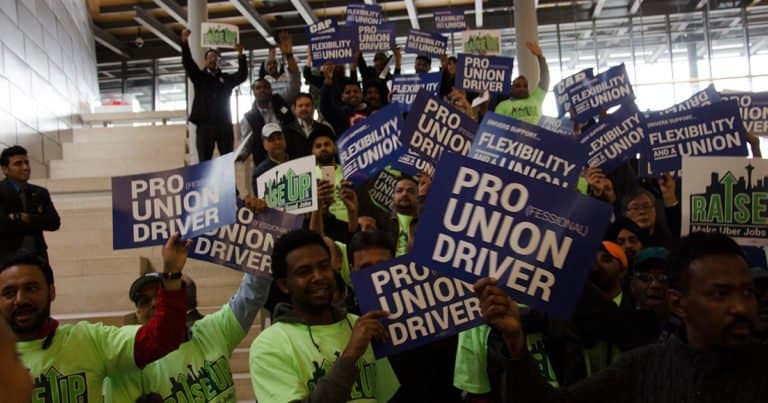
Liana Wang is a student at Harvard Law School.
In today’s news and commentary, HHS cancels union contracts, the California Supreme Court issues a new ruling on minimum wage violations, and rising jobless claims show continued weakness in the labor market.
On Friday, the U.S. Department of Health and Human Services moved to cancel its contracts with federal unions and ended recognition of its employees’ collective bargaining rights. The affected offices are represented by four main unions, including the NTEU and AFGE. The HHS move comes after a panel of the D.C. Circuit stayed a preliminary injunction of President Trump’s March 27, 2025 executive order seeking to end collective bargaining across much of the federal workforce. Earlier this month, multiple other agencies, including the EPA, VA, and USDA also terminated their collective bargaining agreements, as Gurtaran and Mila previously reported.
Meanwhile, the California Supreme Court on Thursday issued a ruling in Iloff v. Lapaille that heightened the standard for employers seeking to make a good faith defense with respect to violations of state minimum wage laws. The case concerned a worker, Laurence Iloff, who performed maintenance on the grounds of a rental property and was thus allowed to live rent-free in one of the houses, but otherwise received no benefits or compensation. After the employers ended the arrangement, Iloff sought unpaid wages, liquidated damages, and penalties. The high court ruled that Iloff was entitled to an award of liquidated damages because the employers had to show they made a “reasonable attempt” to understand the minimum wage law–which the employers did not claim to do. While the court noted that what constitutes a reasonable attempt will vary depending on context, ignorance of the law is insufficient to allow employers to avoid paying these penalties. The decision looked to multiple federal cases requiring employers to actively understand and comply with the Federal Labor Standards Act (FLSA) in order to claim the good faith defense with respect to a FLSA violation.
Lastly, according to data from the Department of Labor, applications for unemployment benefits are rising, while the total number of people receiving benefits, or the number of continuing claims, has reached the highest level since November 2021. The high number of continuing claims shows that currently unemployed workers are facing challenges finding new jobs. The new indicators contribute to concerns over weakness in the labor market ever since the Bureau of Labor Statistics revised its monthly employment numbers sharply downwards. At an annual central banking forum, Federal Reserve Chair Jerome Powell suggested that job market risks could warrant a potential cut to interest rates, although the Federal Reserve remains concerned about inflation.






Daily News & Commentary
Start your day with our roundup of the latest labor developments. See all
October 13
Texas hotel workers ratify a contract; Pope Leo visits labor leaders; Kaiser lays off over two hundred workers.
October 12
The Trump Administration fires thousands of federal workers; AFGE files a supplemental motion to pause the Administration’s mass firings; Democratic legislators harden their resolve during the government shutdown.
October 10
California bans algorithmic price-fixing; New York City Council passes pay transparency bills; and FEMA questions staff who signed a whistleblowing letter.
October 9
Equity and the Broadway League resume talks amid a looming strike; federal judge lets alcoholism ADA suit proceed; Philadelphia agrees to pay $40,000 to resolve a First Amendment retaliation case.
October 8
In today’s news and commentary, the Trump administration threatens no back pay for furloughed federal workers; the Second Circuit denies a request from the NFL for an en banc review in the Brian Flores case; and Governor Gavin Newsom signs an agreement to create a pathway for unionization for Uber and Lyft drivers.
October 7
The Supreme Court kicks off its latest term, granting and declining certiorari in several labor-related cases.